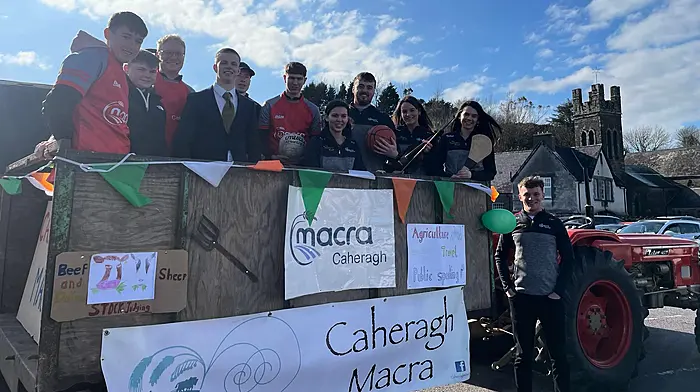ONE of the issues that was raised during the recent by-election campaign in Cork North Central was that of State commemorations of War of Independence events of 100 years ago. In particular, Fine Gael Senator Colm Burke, who unsudccessfully sought a Dáil seat, called for such a ceremony to be held in Cork at the end of 2020 to recognise the Rebel city and county’s heroic contribution to the winning of Irish independence.
The year 1920 was a crucial year in the war of independence and included a number of significant ambushes, including Kilmichael, which led to the burning of Cork city in December by the Black and Tans. Before that, in March 1920, the Lord Mayor of Cork, Tomás MacCurtain, was assassinated in his home in front of his pregnant wife (who later suffered a miscarriage).
His successor, Terence MacSwiney, was arrested and imprisoned and died on hunger strike in a British prison in October 1920. Both are remembered by bronze statues on either side of the entrance to Cork City Hall, but next year’s centenary of their deaths provides a great opportunity to commemorate their work towards and sacrifices for the cause of Irish freedom.
Cork City Council is already planning ahead to mark the centenary of the deaths of the two Lord Mayors in office, but – as with the notable 1916 commemorations three years ago – State involvement is merited. The centenary of the Kilmichael Ambush, which took place on November 28th, 1920, will no doubt be marked appropriately by the active commemoration committee that organises an annual event on the Sunday closest to the 28th and maintains the impressive monument at the ambush site, and a high-profile speaker to deliver the oration should come from the upper echelons – no less a figure than President Michael D Higgins, one would hope.
Undoubtedly, the occasion of the centenary will resurrect the controversy about the ‘false surrender’ that historian Peter Hart started and his brand of revisionism did not best please those who regard General Tom Barry’s account in his seminal book, Guerrilla Days In Ireland, as the definitive one of what happened. Barry commanded the Third West Cork Brigade at Kilmichael and was not known for taking prisoners, and his memoir of this and other engagements with the British Army and the Black and Tans, published in 1949, was rarely questioned until recent years.
Other books have been written and many column inches in the letters section of this page have offered theories about what did happen at Kilmichael and even questioned who was there in some cases. The people who know best were those who took part, but unfortunately, all have passed on since and we can only draw on the evidence gathered over the years from books, Tom Barry’s being the primary source but – with all due respects to him – not necessarily the most objective.
There are plenty of statements in the Bureau of Military History Collection 1913-1921 and the subsequent Military Service Pensions archive where people involved gave their accounts of what they did and where during the revolutionary years. It is a rich source of material, some of it contradictory, possibly as a result of the vicious civil war which followed the war of independence, divided families and perhaps coloured some of the participants’ recollections.
Commemorating the civil war centenary will be fraught, to say the least, given some of the atrocities that happened during it. However, next year in particular provides a good opportunity for further reflection on the events of the war of independence and the sacrifices ordinary men and women made to gain freedom for their beloved country.
To them, a huge debt of gratitude is owed and their efforts must be appropriately commemorated.







